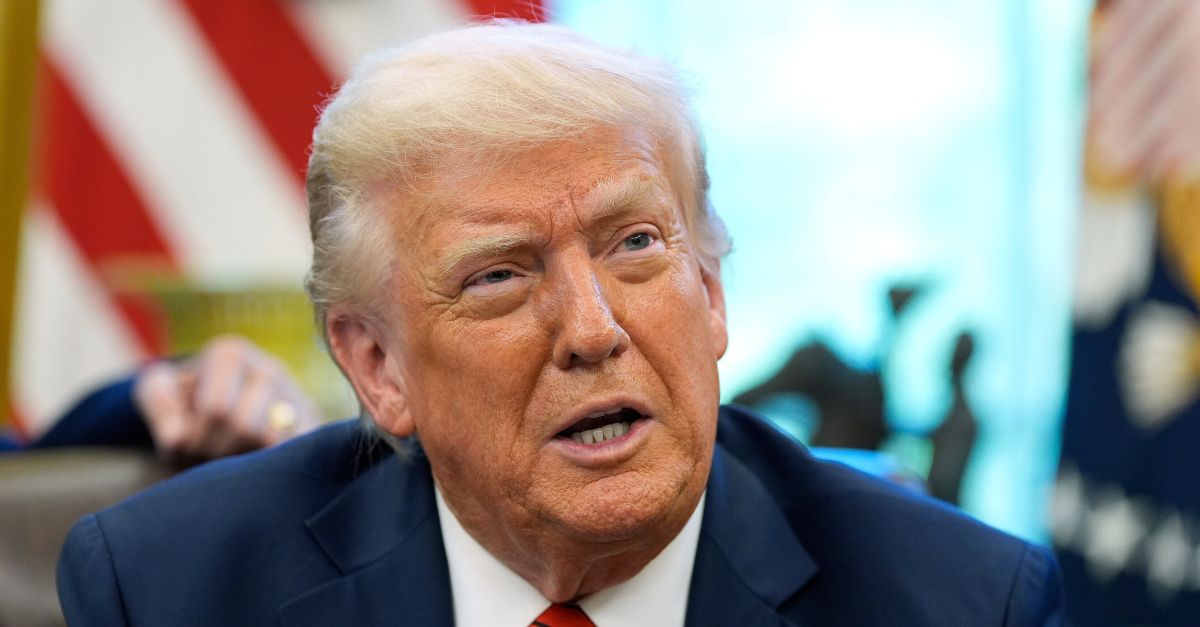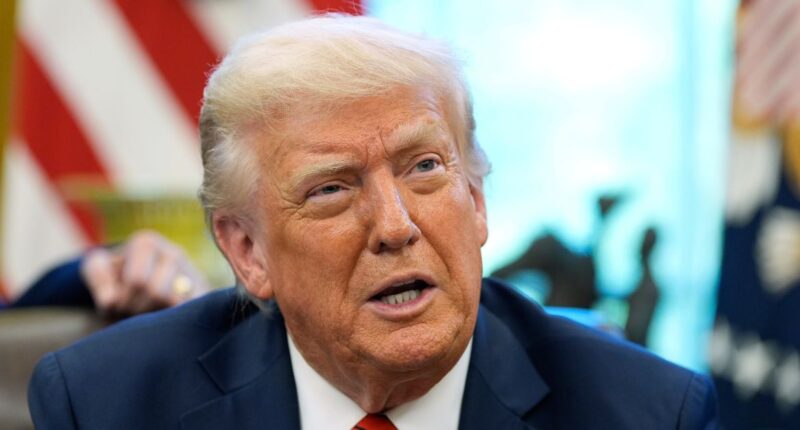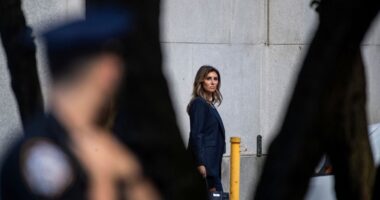
President Donald Trump speaks as he signs executive orders in the Oval Office of the White House, Thursday, April 17, 2025, in Washington (AP Photo/Alex Brandon).
Legal experts were fast to analyze the U.S. Supreme Court’s significant order that prevented the Trump administration from carrying out deportations under the Alien Enemies Act (AEA).
The high court issued a rare Saturday morning ruling, the sole Saturday order of the term, instructing the government to refrain from deporting any immigrant detainees designated for deportation flights in the Northern District of Texas.
“[T]he Court didn’t wait at all,” Georgetown University Law Prof. Steve Vladeck wrote on his blog. “This may seem like a technical point, but it underscores how seriously the Court, or at least a majority of it, took the urgency of the matter.”
The law professor noted that the justices waited neither for an appellate court to rule on the issue nor gave the government a chance to respond to the emergency request before issuing the order.
The order comes as the next step in a parry-and-thrust sequence involving the Trump administration’s use of the obscure wartime law.
In mid-March, the government invoked the AEA. Though immediately enjoined by U.S. District Court Chief Judge James E. Boasberg, officials ignored that court order and promptly flew two planes full of immigrants to a notorious prison in El Salvador. One of the men on one of those flights, Kilmar Armando Abrego Garcia, had an explicit — and separate — court order barring him from being deported to El Salvador.
While the justices dissolved Boasberg’s national injunction, the court also forbade the government from conducting any further deportation flights under the AEA without due process. To that end, the court prescribed writs of habeas corpus in relevant district courts as the way forward for detainees challenging putative AEA deportation.
Then, a few days later, in a separate case, the justices unanimously directed the government to “facilitate” Abrego Garcia’s release from the torture-plagued Salvadoran lockup facility.
But in the past week, President Donald Trump and high-ranking White House officials have misconstrued — and arguably mocked — the high court’s ruling as a 9-0 victory for the government. Meanwhile, at least two other courts, one appellate and one district, pointed out that those rulings were actually defeats for the government, albeit limited ones.
Simultaneously, attorneys across the country have been following the high court’s guidance by filing class-action-seeking habeas petitions in jurisdictions where it is believed immigrants are being housed in anticipation of potential third-country deportations under the AEA.
Such a filing came in Texas on Wednesday; quick work from the court system got the emergency application before the Supreme Court on Friday. Within hours, at least five — and as many as seven — justices voted to stay pending AEA removals of immigrants in North Texas.
The plaintiffs in the case, represented by the American Civil Liberties Union (ACLU), saw fit and were able to avail themselves of the extraordinary intervention because the district court judge denied the original request for a temporary restraining order in the case.
On Thursday, U.S. District Judge James Wesley Hendrix, who was appointed by President Donald Trump during his first term, denied the motion for a restraining order, crediting a statement from Department of Justice attorneys that none of the detained plaintiffs faced “imminent risk of summary removal” under the AEA.
That promise may not be worth much to the high court, according to legal commentator and attorney Ed Whelan, a former clerk for late Justice Antonin Scalia who helped advise Justice Brett Kavanaugh during his contentious confirmation hearings.
“[T]he Court does not trust the Trump administration to abide by its promise to the district court,” he wrote. “And given how unworthy of trust the Trump administration has proven to be, that’s an ample explanation.”
Vladeck appeared to more or less agree with this estimation.
Love true crime? Sign up for our newsletter, The Law&Crime Docket, to get the latest real-life crime stories delivered right to your inbox.
As news of renewed AEA flights circulated this week, the ACLU returned to Boasberg on Friday — the original AEA case — and asked for another temporary restraining order.
During a hastily called hearing, the DOJ hedged its bets.
“I’ve spoken with DHS, they are not aware of any current plans for flights tomorrow,” Deputy Assistant Attorney General Drew Ensign said. “I have also been told to say that they reserve the right to remove people tomorrow.”
Boasberg declined to grant relief, but Vladeck said the justices were likely keenly aware of the government’s position.
“In a world in which a majority of the justices were willing to take these kinds of representations at face value, there might’ve been no need to intervene overnight Friday evening; the justices could’ve taken at least all day Saturday to try to sort things out before handing down their decision,” the law professor wrote. “The Court appears to be finally getting the message — and, in turn, handing down rulings with none of the wiggle room we saw in the J.G.G. and Abrego Garcia decisions last week. That’s a massively significant development unto itself — especially if it turns out to be more than a one-off.”










